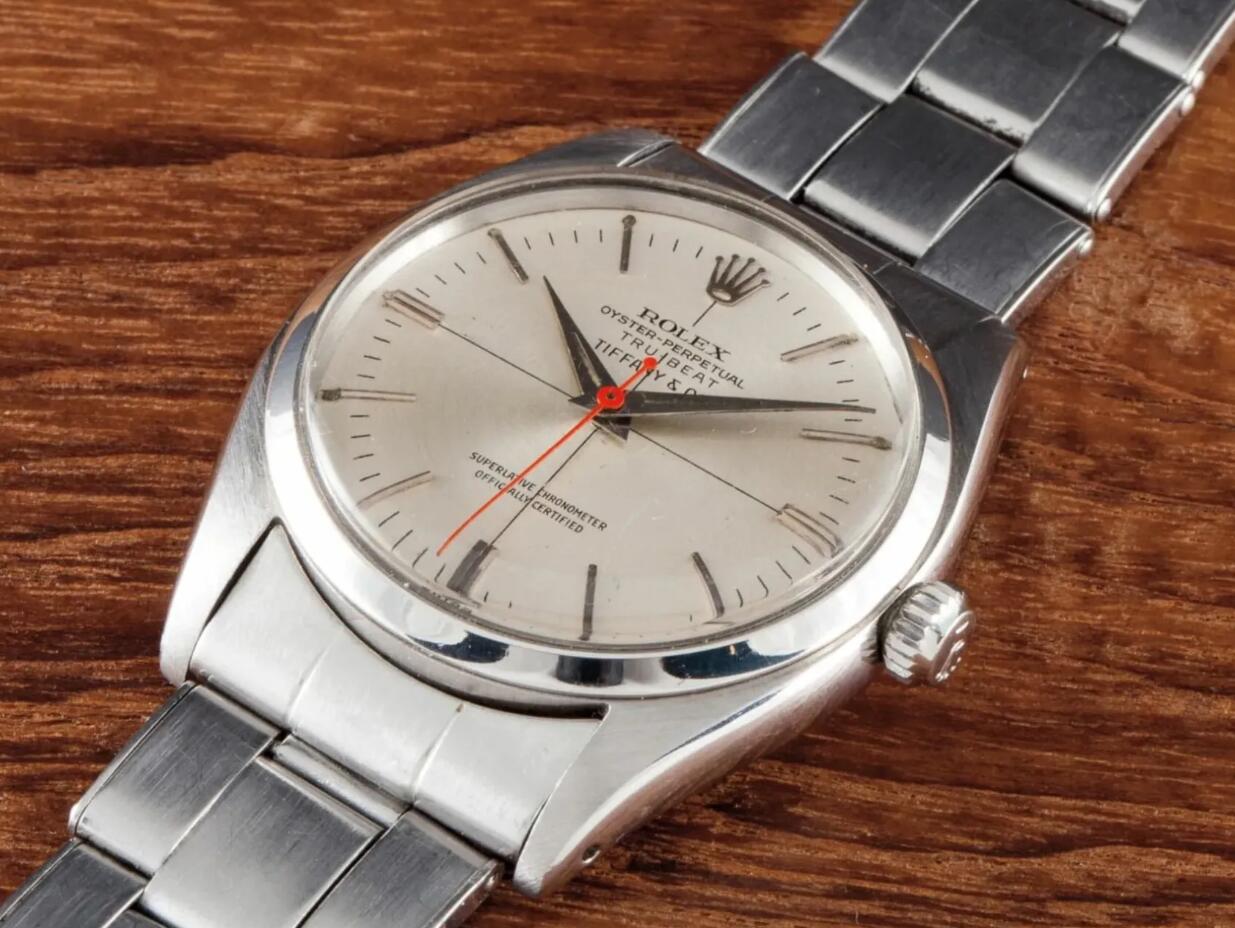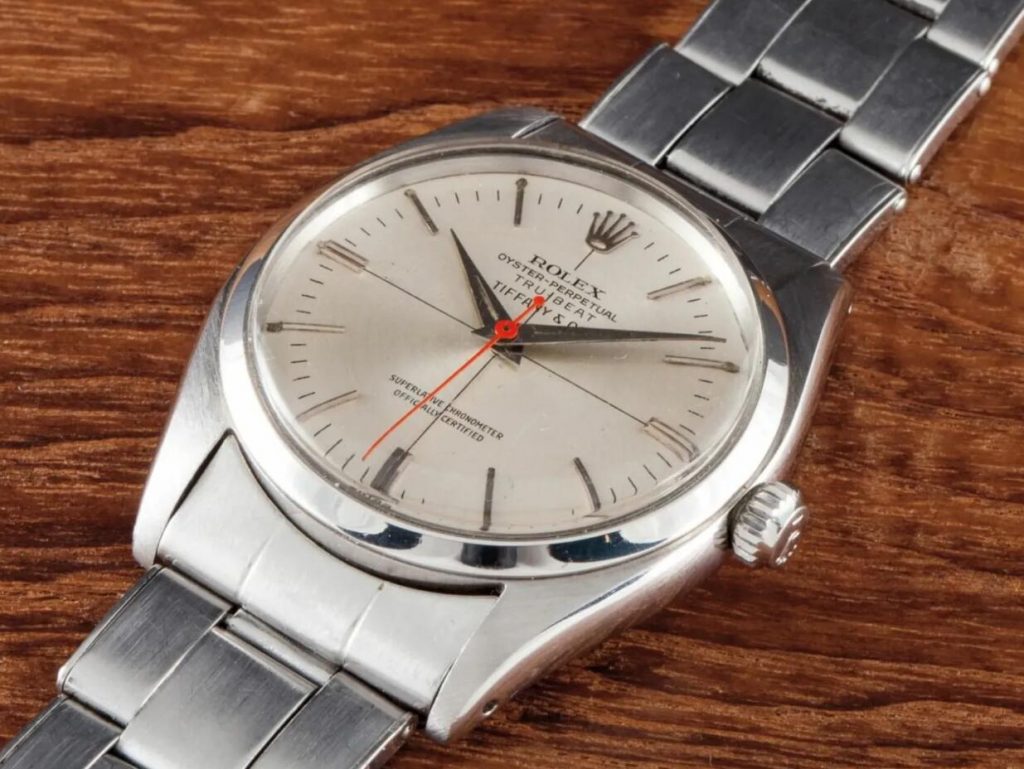One tick for every second. It’s a dead giveaway that the watch you’re seeing has a quartz movement. And if you see perfect Rolex replica watches ticking like this, it likely means that the watch is either 1) the little-seen Rolex OysterQuartz or 2) a shameless fake with a quartz movement.
But there’s a very improbable third option: the UK cheap Rolex fake watches you’re seeing is a Rolex Tru-Beat, a bizarre little piece of timekeeping obscura with an incredibly rare complication: a deadbeat seconds hand.
What’s a deadbeat, again?
The deadbeat is one of watchmaking’s greatest ironies. It ticks once a second, precisely like your garden variety quartz, but it’s mechanical.
In fact, it requires a remarkably complex mechanism inside to make that mechanical movement, which would usually advance the seconds hand several times a second, to move just once a second.
The complication was initially invented way back in 1675 when it was put into a regulator clock but the function didn’t show up in the wristwatch until the 1950s. This is where the Tru-Beat comes in.
History of the Tru-Beat
Debuting in 1954, the Tru-Beat was one of the earliest of the deadbeat seconds wristwatches (the similarly rare Omega Synchro-Beat came out around the same time).
When it went on sale, high quality replica Rolex watches marketed the Tru-Beat specifically toward doctors and other medical professionals. Apparently, the once-per-second tick was meant to help these professionals calculate a patient’s pulse rate.
This is, admittedly, a tiny market to begin with, and probably why 1:1 online Rolex copy watches sold very few of them and eventually discontinued the model after five years on the market.
By all accounts, the movement was a pain to service.
Not helping the Tru-Beat’s case was the fact that the deadbeat effect is mechanically challenging to achieve. Given that the top Rolex replica watches‘ operating frequency was 18,000 beats per hour (or five ticks a second), a complex escapement was required to reduce every five beats into one single, spring-loaded jump.
By all accounts, the movement was a pain to service and supposedly, in some cases, the deadbeat movement was swapped out for a standard movement by Rolex to keep them running.
This lends itself to the mythos of the Tru-Beat and is ostensibly a factor in its exceeding rarity, along with the fact that the luxury Rolex super clone watches was a sales flop to begin with.
The Tru-Beat Today
As such, very few Tru-Beats in original condition show up for sale or auction, and when they do, they command a mighty sum, because if the vintage Rolex market has taught us anything, it’s that no replica Rolex reference watches is too weird or quirky to be considered collectible. One from Phillips, for example, sold for nearly $40,000 in 2015.
It’s tempting to look at the complexity of the watch, the questionable utility of the complication and the slow sales of the Tru-Beat and consider it a misguided effort from The Crown. But, in many ways, the replica Rolex watches wholesale was ahead of its time.
It’s tempting to consider it a misguided effort from The Crown. But, in many ways, the watch was ahead of its time.
Today, many other high-end brands like A. Lange & Söhne and Jaquet Droz have produced their own deadbeat seconds watches as a subtle flex of watchmaking ability.
There’s a good chance you won’t see a medical professional wearing one of these Swiss movements fake Rolex watches out in the field, but that alone is a testament to the deadbeat’s oddball splendor.

